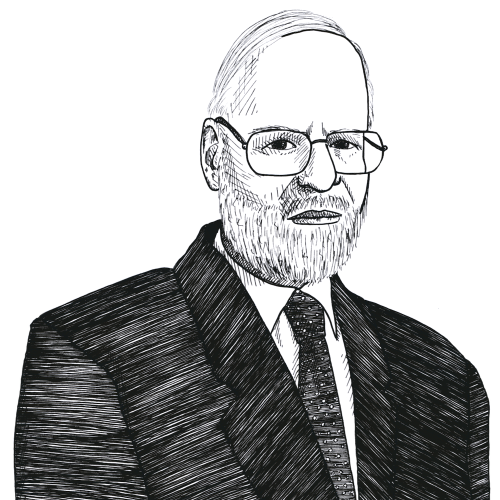Liberty Matters
Coordination Is the Problem, Entrepreneurship the Solution
 Thanks to David Hart and Sheldon Richman for organizing this discussion, and to Mario, Peter, and Fred for their participation in this exchange of ideas on the nature of competitive behavior and the entrepreneurial market process. Hopefully, in our respective assessments of the contributions of Israel M. Kirzner, we have articulated some key insights in the theory of price and the theory of markets which are not limited to evaluation of Kirzner’s work.
Thanks to David Hart and Sheldon Richman for organizing this discussion, and to Mario, Peter, and Fred for their participation in this exchange of ideas on the nature of competitive behavior and the entrepreneurial market process. Hopefully, in our respective assessments of the contributions of Israel M. Kirzner, we have articulated some key insights in the theory of price and the theory of markets which are not limited to evaluation of Kirzner’s work.Differences remain among us as a result of (a) matters of intellectual tastes, (b) rhetoric and semantics, and (c) analytics and substantive claims about prices, profits, and markets. For my part, however imperfect in expression, I have tried to suggest that scientific progress will come from engaging analytical and substantive claims and trying to put aside the other sources of our differences. This is easier said than done, however. But still, in my judgement the critical issue boils down to how individuals learn under alternative institutional arrangements and understanding what adjustments and adaptations they must make to realize the mutual gains from social cooperation under the division of labor.
The central puzzle of the discipline of economics since its inception as a systematic body of thought has been how dispersed and diverse individuals who populate an economy are able to achieve complex coordination without a commanding authority dictating what is to be done, who is to do it, and for whom will it be done for. Instead, the tug and pull of competitive efforts will prod, direct, and encourage individuals to behave in such a way that the production plans of some will mesh with the consumption demands of others. Mutually beneficial exchanges will occur; least-cost technologies will be employed; and wealth will be created throughout the economic system. The prime mover in this process of coordination is the entrepreneur, who within an environment of well-defined and well-enforced private property rights, freedom of trade and association, sound money, and fiscal responsibility will act on any discrepancy between the induced (property ownership, relative prices, and profit-and-loss statements) and underlying (tastes, technology, and resource availability) variables of markets to adjust the situation and recalculate the pattern of exchange and production to bring those variables into alignment. This entrepreneurial market process, which assumes the institutional environment just described, engenders the mutual learning required for complex coordination. Property rights incentivize, relative prices guide, profits lure, and losses discipline. The market is constantly evolving toward a solution, and this evolution is best understood when we recognize both variation (entrepreneurial creativity and/or alertness) and selection (the market discipline of profit/loss). This is how markets work.
Matters of intellectual taste and semantics should not prevent us from understanding the fundamental contributions of Israel Kirzner to market theory and the price system. Kirzner’s contributions elaborated on those of his teacher Ludwig von Mises, refined them, and applied them to the pressing theoretical issues in economic science of his time. There is much to learn in a careful and critical engagement with the criticisms offered by Mario and Peter, and in Fred’s comments throughout this dialogue. And from my point of view, if this discussion leads readers to delve deeper and more critically into the body of Kirzner’s work as reflected in his Collected Works being published by Liberty Fund, it will have more than served its purpose.
What is important to understanding Kirzner’s contribution is not only the institutional context within which entrepreneurs learn of and correct errors in their pursuit of profit, but also, for the other participants of the discussion, the intellectual context in which Kirzner was arguing. To take him outside of that historical-intellectual context is to miss his fundamental contribution, that is, how the entrepreneur “fills the gap” of plan coordination in contemporary price theory.
Coordination is indeed the problem that has excited the imagination of economic theorists from the classics to the moderns. Entrepreneurship provides the solution, and Kirzner is on the list of great economic thinkers who saw and articulated this in the context of the debates of their time. That, I have argued, is a contribution worthy of our respect, admiration, critical engagement, and the highest scientific recognition in our profession.
Copyright and Fair Use Statement
“Liberty Matters” is the copyright of Liberty Fund, Inc. This material is put on line to further the educational goals of Liberty Fund, Inc. These essays and responses may be quoted and otherwise used under “fair use” provisions for educational and academic purposes. To reprint these essays in course booklets requires the prior permission of Liberty Fund, Inc. Please contact oll@libertyfund.org if you have any questions.